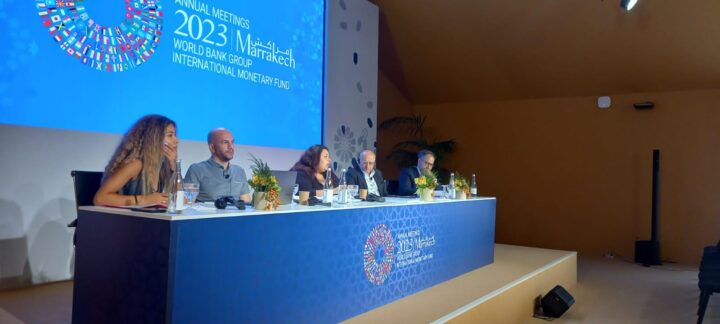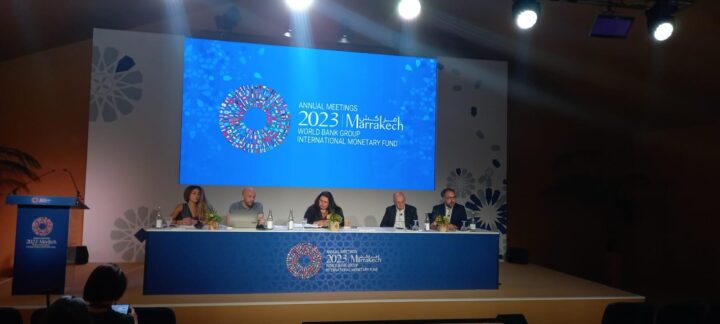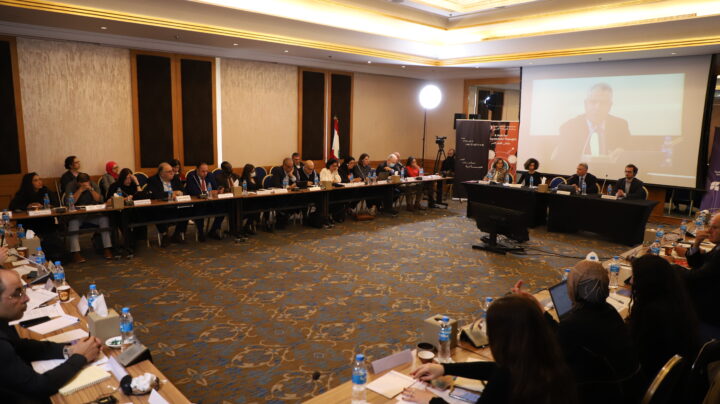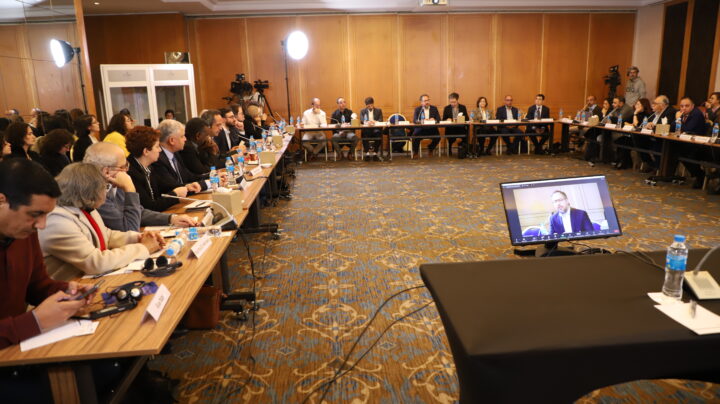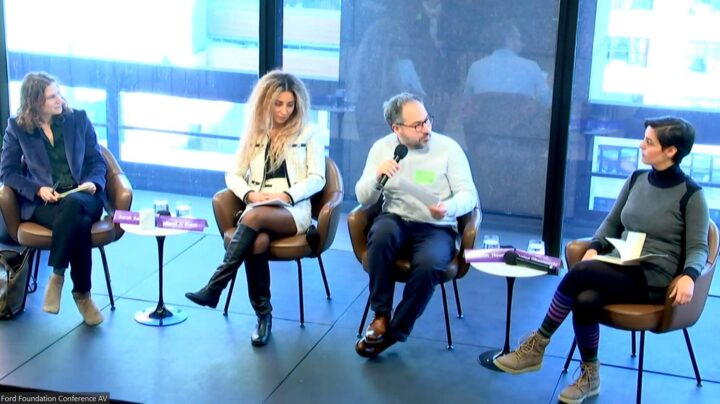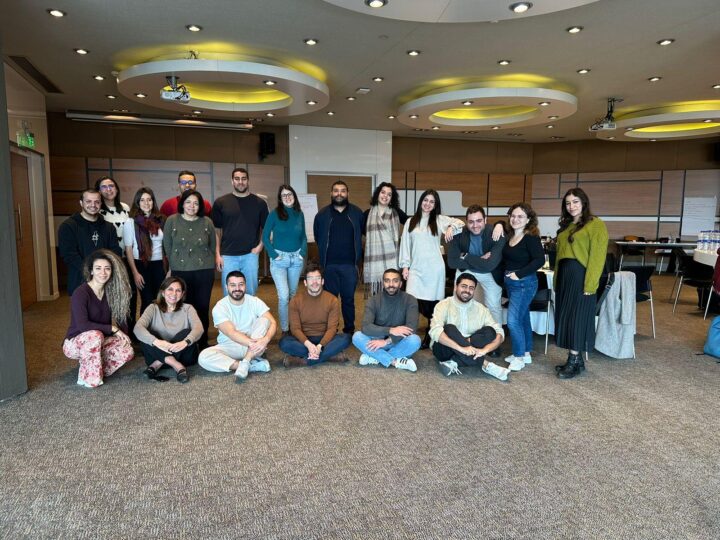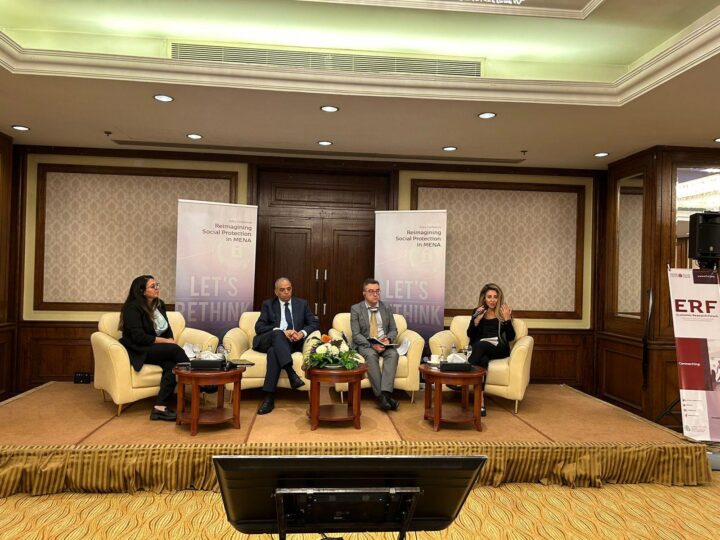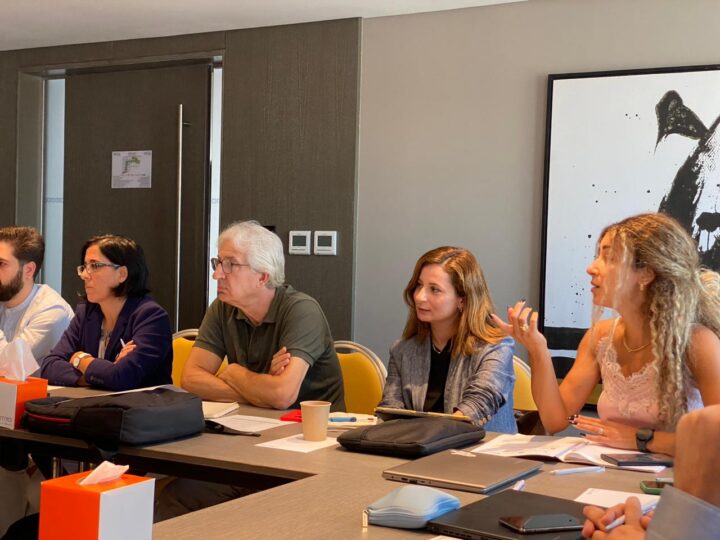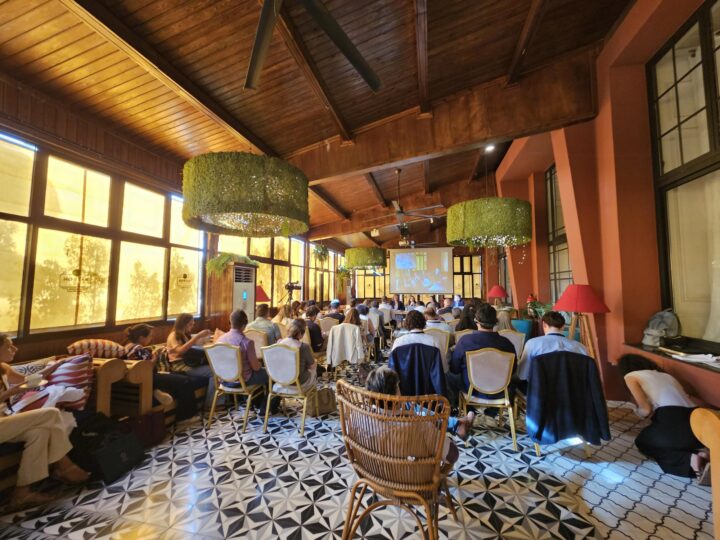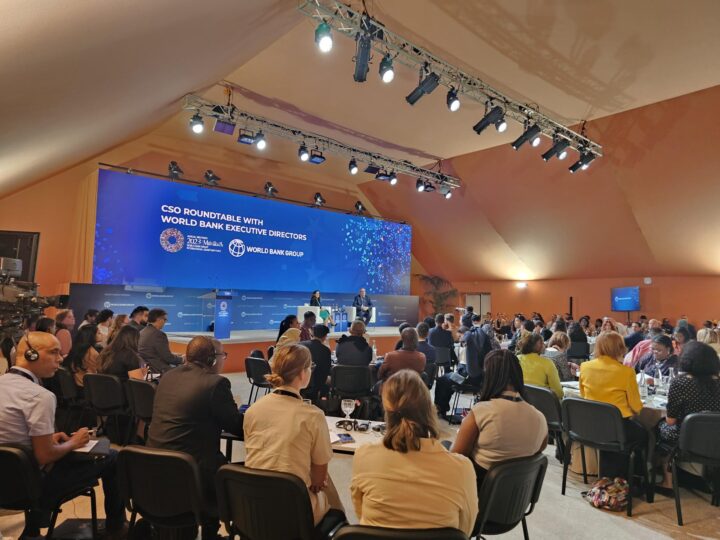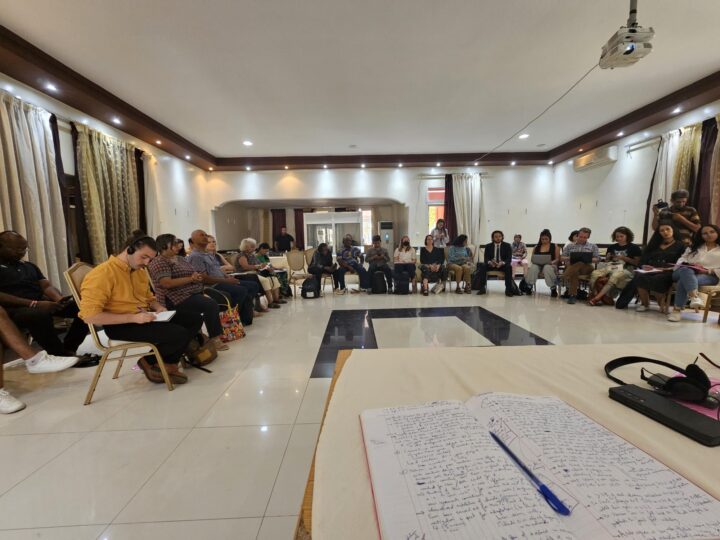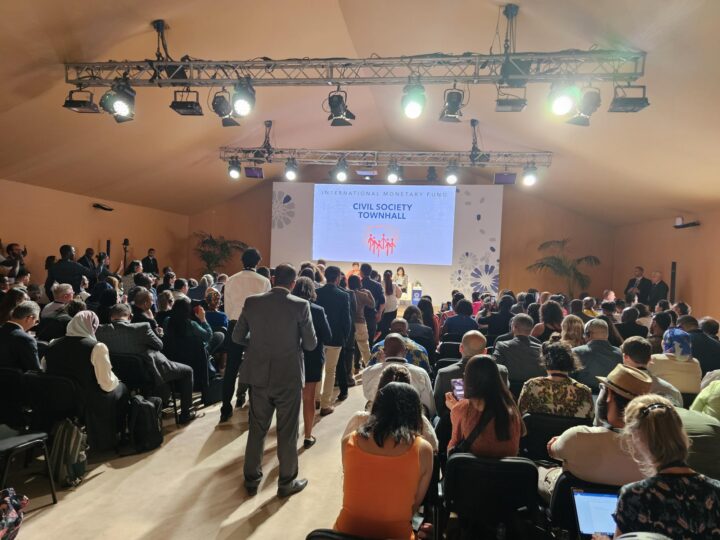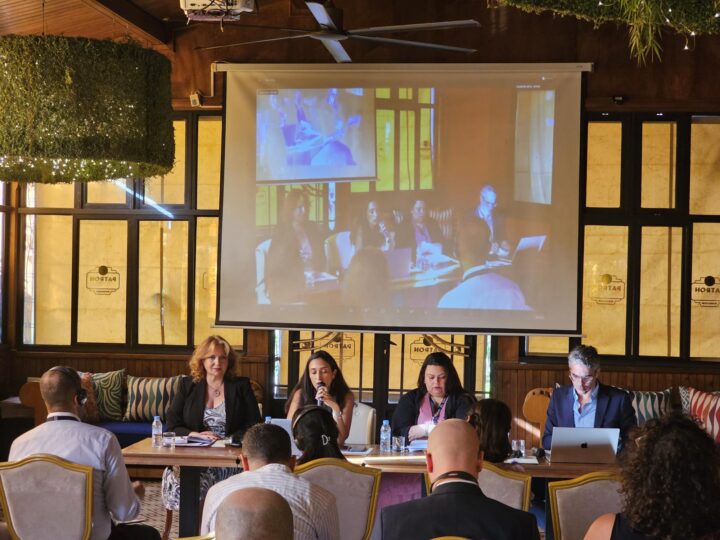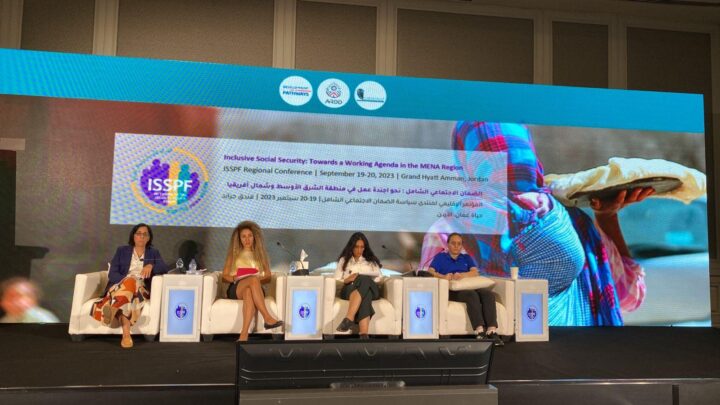The Arab Reform Initiative (ARI)’s Social Protection Program envisions an Arab region in which all people, regardless of their identities, are guaranteed social protections that secure their access to the essential goods and services needed to ensure their well-being and decent standards of living, which in turn gives them the opportunity to prosper and contribute as active members of society. The program began in 2020 as a project by an ARI-led collective of eight organizations, seeking to map, document and analyze the socio-economic impacts of the COVID-19 pandemic and its repercussions in the Arab region. As the pandemic was found to have substantially magnified the dearth of social protection that has long characterized the region, the program was established with the objective to bring together researchers, practitioners, and activists in order to devise policy solutions that support the promotion of universal social protection schemes, which are necessary to alleviate poverty and enhance social security and equity across all communities. In doing so, we aim to put the discussion towards building more inclusive social policies center stage in the post-COVID-19 recovery strategies and the concerted efforts to “build back better” in the midst of the multitude of crises and conflicts afflicting Arab countries.
Our approach to social protection is a human rights-based one. We consider social protection to be the primary responsibility of the State, and a manifestation of the social contracts that tie citizens and residents to their States. We reject the humanitarian assistance approach to social protection whereby it is primarily considered to be an aid mechanism or a service. We insist that all actors providing humanitarian assistance in times of crisis and emergency ensure that the aid they provide is complementary to the existing social protection schemes, is fully integrated where possible, and covers recipients that are excluded from existing schemes. Our program therefore examines how frail or inexistent social contracts in the region have shaped Arab social protection systems and prevented them from being effective and sustainable enough to shield people from the negative livelihood implications of the various political or socio-economic shocks that have been recurrently affecting many Arab countries.
To that end, the program’s research agenda revolves around four key pillars:
- What should the priorities for expanding social protection be nowadays? Notably, what are the necessary policy, programmatic, institutional, legal and legislative reforms to fulfill this objective?
- What are the needed fiscal reforms and financing mechanisms to fund the universal social protection policies and programs we aspire for?
- How to overcome the politico-economic factors and the political redlines behind the prevailing inadequate social protection systems in the Arab region? How to bridge the gap between policy and politics knowing that the desired policy change requires a political will and serious – and possibly systemic – political change?
- How can research initiatives accompany and work with social movements demanding universal social protection systems in the region?
As we address these dimensions, we look at the intersection between social policy and responses to other crises or issues afflicting the different Arab contexts in question; we delve deep in the specificities of the numerous vulnerable and marginalized social groups; we scrutinize the cases of a variety of sectors, industries, and specific programs or interventions; we try to propose alternatives that span national, local, and even more micro/execution-level forms of governance; we investigate the multiple faces of social activism related to welfare policies as well as the politico-sociological factors lying under them; and we probe the role of international financial institutions (IFIs) and the spillovers of external conflicts/crises, among other external factors. While doing so, we remain, however, mindful that social protection systems are not enough on their own to achieve social equality and social justice. These aims need new economic models and development paradigms that abide by all the aspects and goals of the 2030 Agenda, and where all public policies and legal frameworks are just and responsive to the different forms of social vulnerability. It is only then that our desired social protection systems can be complementary enough and thus effective.
We strive to advance our research agenda by:
- Executing, encouraging, and facilitating the production, analysis, collation, and dissemination of interdisciplinary knowledge about social protection in the Arab region.
- Facilitating multi-stakeholder exchanges, convening dialogues within and between professional and policy spheres, and raising awareness on the issue at hand among the wider public.
- Supporting and joining collective action that amplifies advocacy efforts with other stakeholders and the decision makers.
Our efforts seek to consolidate a community of practice and knowledge on social protection in the Arab region. One that builds on the existing ecosystem, solidifies it, and expands it. One that has a coordinated vision and that strives to facilitate dialogue, exchange, partnerships, and cooperation in order to join forces, become more impactful, and ultimately achieve our shared goals. Accordingly, we have initiated the Arab Region Hub for Social Protection, a virtual go-to space where professionals who are dedicated to exploring, understanding, and advocating for better social protections in the Arab States can share ideas, success stories, and lessons learnt, as well as explore and initiate several layers of collaborative action. This joint declaration outlines our community’s proposed approach to make social protection schemes in the Arab region more integrated, effective, inclusive and viable, and unifies its members’ discourses on “building universal social protection systems in turbulent Arab contexts.”
Publications

Egypt's Successive Economic Crises: The IMF's Impact and Pathways to Just Monetary, Food, and Social Policies

Recent Social Security Reforms and New Pension System in Lebanon: Interview with ILO’s Rania Eghnatios and Luca Pellerano

“The Road to Marrakech” Ended on a Rolling Hill: What About the Spring Meetings and Beyond?

New Release: A Vision for Universal Social Protection Systems in the Arab Region

A Guide to Universal Social Protection in the Arab Region: Challenges and Opportunities

Beyond Politics: Rethinking Humanitarian Aid in Gaza Amidst Disproportion and Disparity

Social Protection under Kais Saied’s Political Project: Crumbs and Clues in Search of a Vision

ARI Announces Winner of its 2023 Student Prize

Lebanon's Unemployment Crisis: Strategies for Job Creation in a Collapsed Economy

Arab Region Social Protection Systems: Research and Policy Design Challenges

IFIs and Social Protection: Gender Equality in Limbo

Morocco’s Social Protection Programs: Can the Country Overcome the Odds?

The COVID-19 Crisis and Health Inequality: A Reciprocal Magnification Effect in the Arab Region

Observations on the Situation of Social Protection Amidst the Sudanese War

A joint statement on the IMF’s Article IV report

From Tangential Livelihood Programming to Integrated Social Protection: Conceiving a Long-Term Approach to Youth Economic and Social Policy in Iraq

The Dynamics of the Right to Social Protection in the Arab Region: Exploring the Role of the State in Changing Times

Lebanon Needs to Shift from Elite Welfare to Common Welfare

Social Security in Lebanese Political Economy: A Critical View from within the National Social Security Fund

Technology and Collaboration: Successful against the odds and corruption in Lebanon?

The Potential of Social Protection to Transform Host-Refugee Relationships in Lebanon

Lebanon’s Disability Allowance: A glimmer of hope?

Navigating the Aftermath: The Struggle for Equality in the Face of Health Crises in the Arab Region

Egypt’s Political Discourse and Changing Social Assistance Systems

Syria’s Earthquake Exposes Broken Aid Machine

Declaration on Building Universal Social Protection in the Arab Region

Social Policy in Algeria: Sociopolitical Challenges and Economic Costs

Financial Analysis of Health System Shifts in Egypt: Searching for “gratuitousness” and the right to health

Egypt: The Price of Inaction on Tax Reform

Algeria’s social support policy: Economic costs and the need for reform

Rethinking our understanding of vulnerability under the pandemic
The Mediterranean Region: A Hotspot of Inequalities in the Aftermath of COVID-19

Beyond Morocco’s agricultural boom: The invisibility and precariousness of a female agricultural workforce

Tunisia: COVID-19 Increases Vulnerability of Rural Women
The Trap of Pinning Hope on the IMF’s Special Drawing Rights (SDR) in Lebanon

The impact of the Ukraine war on the Arab region: Food insecurity in an already vulnerable context

A Slice of Knafeh for Everyone? A Critical Introduction to Universal Basic Income in MENA

Which Tax Policies for Lebanon? Lessons from the Past for a Challenging Future
Events

2024
WebinarEgypt's Successive Economic Crises: The IMF's Impact and Pathways to Just Monetary, Food, and Social Policies
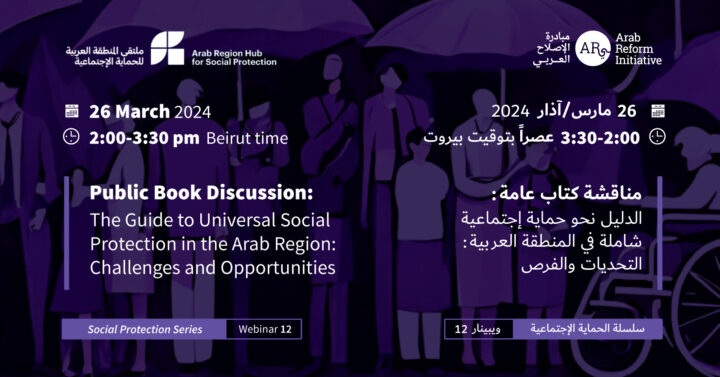
2024
WebinarPublic Book Discussion: "The Guide to Universal Social Protection in the Arab Region: Challenges and Opportunities"

2024
WebinarUnlocking gender equality: The power of universal social security programs

2023
The Paths Forward Towards Realizing the Right to Social Protection: Perspectives from the Arab Region

2023
Financing Universal Social Protection Systems in the Arab Region: What alternatives to debt and austerity?

2023
The Impact of IFIs on Social Protection in the Arab Region

2023
IFIs, Climate Finance, and Social Spending: The Missed Opportunity!

2023
WebinarSocial Protection in Arab Conflict Settings: Unpacking the impact of humanitarianization, NGOization, and politicization

2023
WebinarMental and Psychological Impairments: How do they fall through the cracks of Arab social protection systems?

2023
WebinarAfter the earthquake: Rethinking humanitarian aid in Syria

2022
WebinarRegional Policy Forum: Building Universal Social Protection Systems in the Arab Region

2022
WebinarFood Insecurity in the Arab Region at the Junction of Covid-19 and the Ukraine War: What social protections do we need?

2021
WebinarAccess to vaccines in the Arab region: What do we know?

2021
WebinarFemale Agricultural Workers: At the Heart of Food Security while Deprived of Basic Rights

2022
WebinarThe Gendered Impact of Covid-19 Responses in the Arab Region: A Dire Need for Effective Social Protection

2021
WebinarThe Genesis and the Evolution of the Concept of Social Protection in the Arab Region

2021
WebinarRecovery through Fighting Inequality: How to Escape the Debt-Austerity Trap in the MENA Region?

2020
WebinarWhat Tax Policy for Lebanon? Lessons from the Past for a Difficult Future

2021
WebinarPromises and Pitfalls: Lebanon Reform, Recovery and Reconstruction Framework (3RF)
Videos

The importance of social protection: Work and income

The importance of social protection: Community and Collaboration

The importance of social protection: Universal social protection

The importance of social protection: Health

The importance of social protection: Inequality and areas to improve

